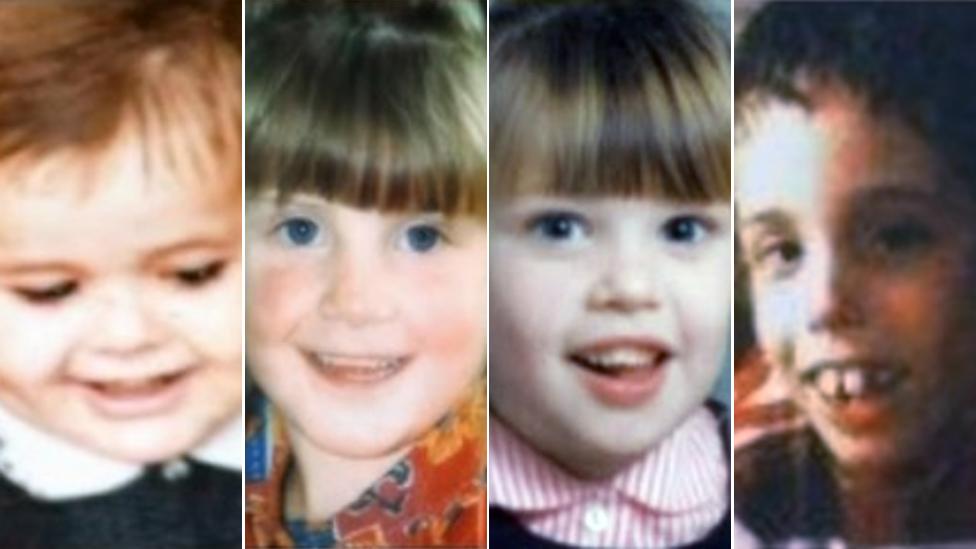NI health campaigners say 'enough is enough'
- Published
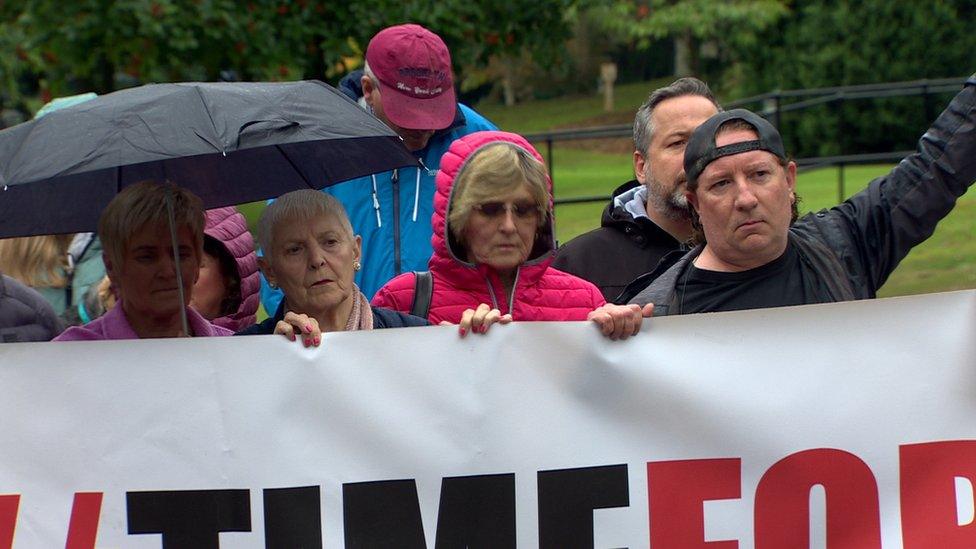
A collective of campaigners gathered at Stormont in protest on Saturday
Former patients and families of those affected by some of Northern Ireland's worst health scandals have called for accountability at every level of the health service.
The collective of campaigners gathered at Stormont in protest on Saturday.
They have demanded change, saying "enough is enough".
They included those affected by systemic failures identified in neurology, urology, care homes and hyponatraemia.
Danielle O'Neill, a former patient of the neurologist Dr Michael Watt, whose practice led to Northern Ireland's largest patient recall, was among them.
"It's important for us to stand here today as a collective with all of the other scandals to show that we demand an individual duty of candour," she said.
"We demand accountability, we demand justice.
"There have been far too many health scandals in our health service."
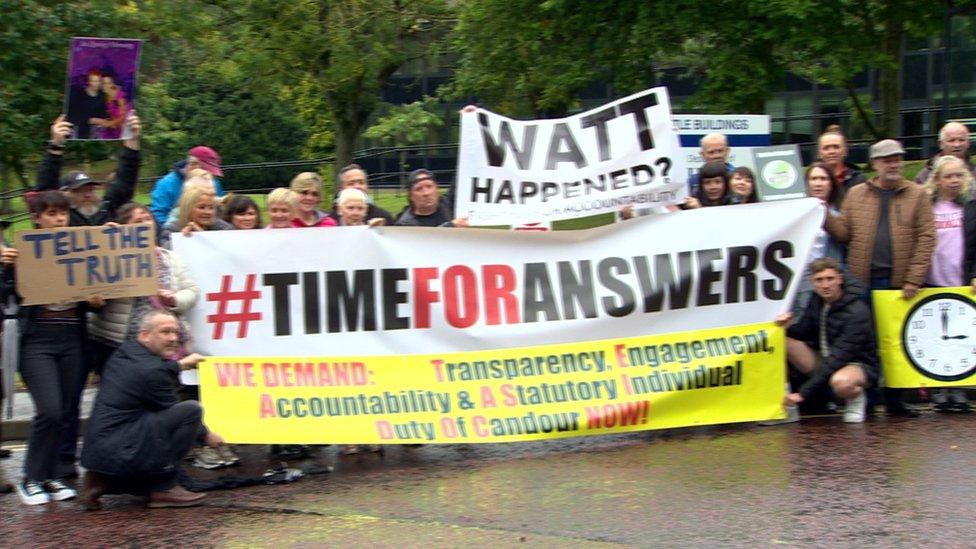
Some of those present were former patients of Dr Michael Watt
In June, an inquiry found the Belfast Health Trust failed to intervene quickly enough in the case.
More than 5,000 former patients of neurologist Dr Michael Watt were invited to have their cases examined for possible misdiagnoses.
The inquiry found "numerous failures".
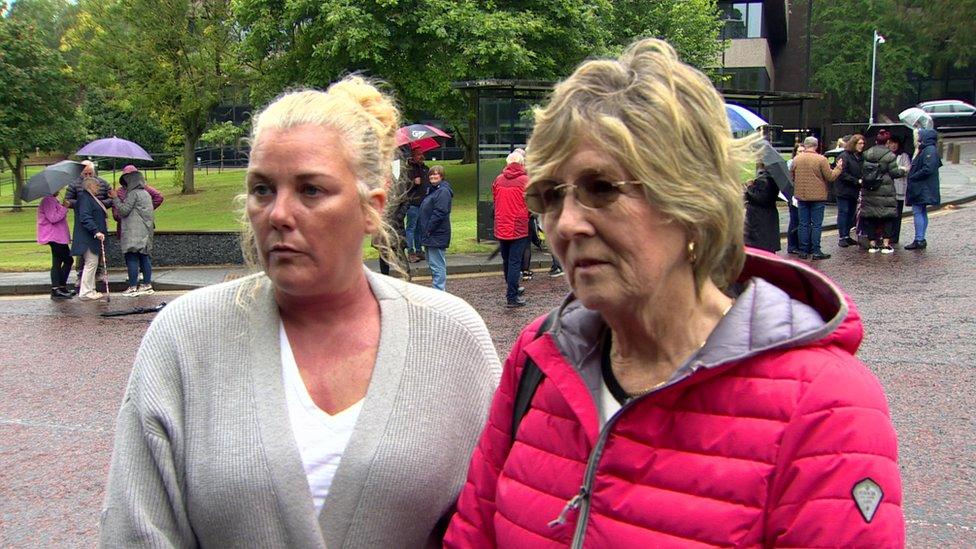
Danielle O'Neill and Therese Ward are both former patients of the neurologist Dr Michael Watt
Therese Ward, another patient of Dr Watt, said the culture within the health service needed to change.
She said: "There were people bringing complaints to the right people in the department for years, but those complaints were not escalated to the right people at the right time, and why not?
"Not reporting concerns is at the heart of this problem in the health service.
"And it's going to have to be addressed - this culture."
The trust and health minister have apologised to Dr Watt's patients.
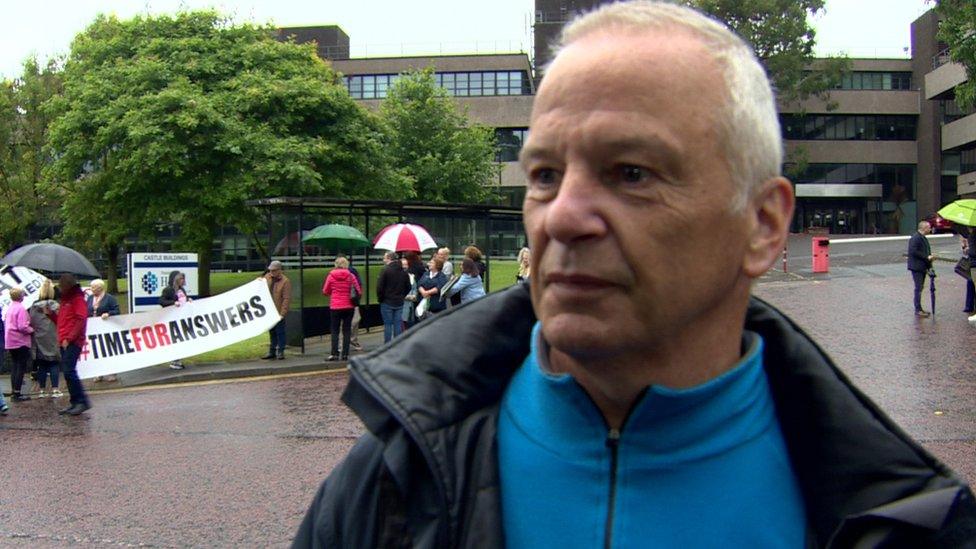
Alan Roberts said the Stormont Executive has to ensure a duty of candour is enacted in Northern Ireland
Alan Roberts, whose daughter Claire's death in 1996 was subsequently examined during the Hyponatraemia Inquiry, said the protest was to demonstrate families' "disgust and anger at the Department of Health".
"Everyone wants to see the Executive up and running," he said.
Hyponatraemia is a medical condition that occurs when there is a shortage of sodium in the bloodstream.
In January 2018, an inquiry into the deaths of five children found that four of them were avoidable.
The report, external was heavily critical of the "self-regulating and unmonitored" health service.
"One of the main tasks that the Executive has is to ensure a duty of candour is enacted in Northern Ireland," said Mr Roberts.
"A duty of candour which would be applied to not only organisations but most importantly to individuals, and every individual working in the Department of Health."
He urged assembly members to get back to work to address the problems in the health service.
The Belfast, Southern and Western health trusts have said they "unreservedly apologise" to the five families.
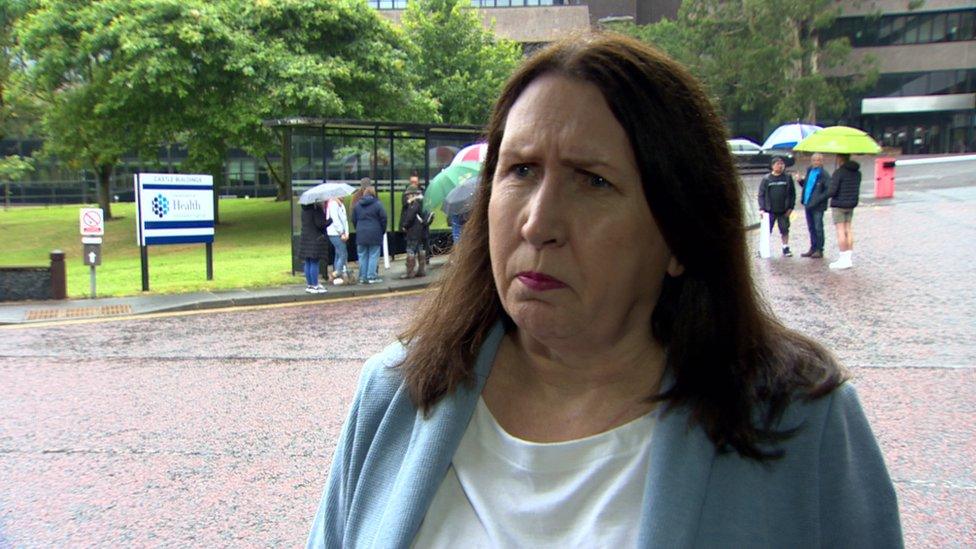
Mary McLaughlin from Mesh Ireland said her message to the Stormont institutions was "you're not doing enough"
Mary McLaughlin from Mesh Ireland is among thousands of women in Northern Ireland to have been fitted with a urological device known as a mesh implant.
Mesh implants have been used to treat conditions some women suffer after childbirth, such as incontinence and prolapse.
But they have caused injury to many, including Ms McLaughlin, who has had to undergo painful removal surgery.
An independent UK review in 2020 said many lives have been ruined because officials failed to hear the concerns of women given drugs and procedures that caused them or their babies considerable harm.
The Cumberlege review was into three different treatments - Primodos, sodium valproate and pelvic mesh - affecting hundreds of thousands of women and babies across the UK.
Ms McLaughlin said her message to the Stormont institutions was "you're not doing enough".
"You're delaying on everything," she added.
"You're treating vocal campaigners as people you don't want to talk to.
"You do tick-the-box stakeholder engagement.
"And we are fed up with it."
Related topics
- Published21 June 2022
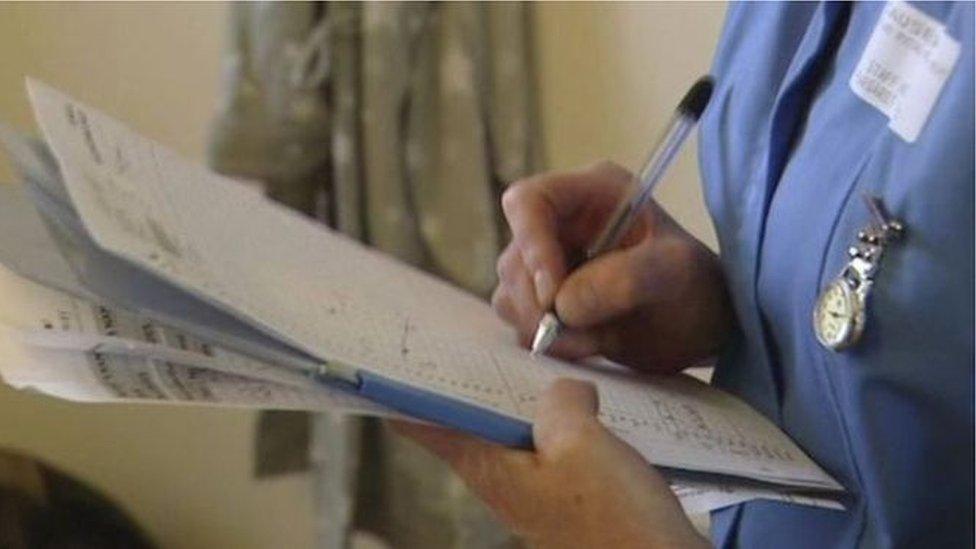
- Published31 January 2018
